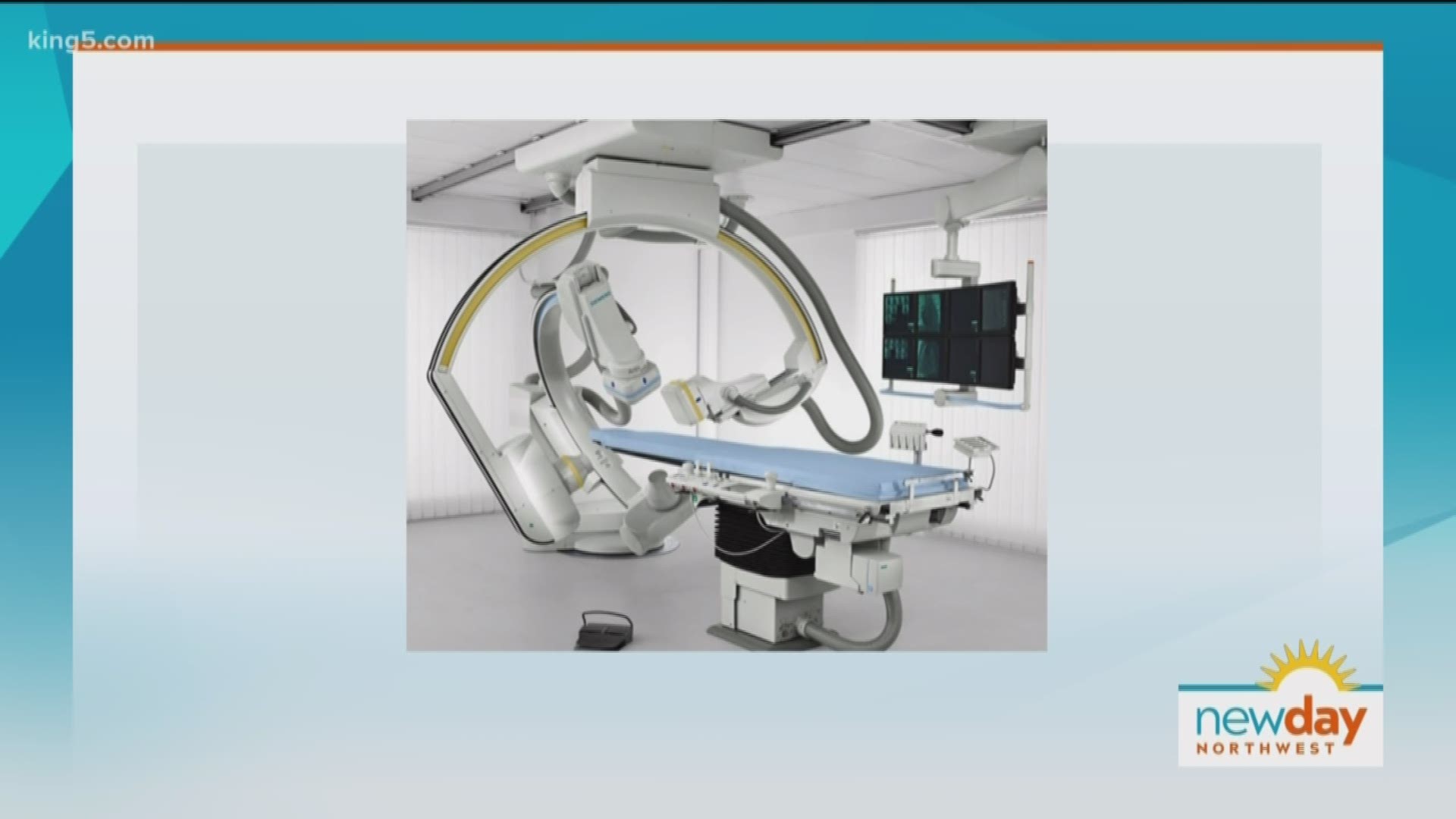KIRKLAND, Wash. — Strokes affect nearly 800,000 Americans each year and are the leading cause of long-term disability in the United States. A stroke occurs with there is a blockage of blood and oxygen to the brain, which can kill or damage brain cells. When someone experiences a stroke, every minute is critical. The more quickly they can receive care, the better chance they have of recovering.
Dr. David Likosky, Vascular neurologist and executive medical director of EvergreenHealth's Neuroscience Institute and hospitals, joins New Day Northwest to discuss their stroke care program and their multidisciplinary approach to treating patients.
"In years past, there wasn't really a whole lot we could do about strokes. It really was that disease where you would say 'take a few aspirins' and that was about all we could do," Dr. Likosky said.
"A stroke really is just the interruption of oxygen or blood to an area of the brain," Dr. Likosky explained. In terms of the symptoms, he said, it's all about location. "The area of the brain that doesn't receive enough oxygen or blood flow is the area that's affected."
In the past several years, the medical communities' ability to treat stroke has improved tremendously. Because the window for treatment for a stroke is so narrow, EvergreenHealth prioritizes innovation within the field and keeping up on the latest advancements in care. Today, Dr. Likosky said the chances of a person recovering from a stroke have never been better.
"Five years ago, patients who would come into the hospital unable to speak, unable to move one side, would have gone to a nursing home. Now, a lot of times you can see those patients get better on the table and they go home."
Dr. Likosky said this major transformation is due to the new treatments being used. "We've gone from a time where we could just give aspirin to a time in the mid-'90s where we could give a clot-busting drug, which we still use, a drug called tPA, to now, where we can intervene and actually remove blood clots."
Their stroke program is consistently recognized for exceeding the national standard and uses a multidisciplinary approach. ER physicians, neurologists, hospitalists, neurosurgeons, radiologists and nurses all collaborate to provide the best treatment for each individual case.
EvergreenHealth uses TeleStroke technology as a way for patients to connect with neurologists and stroke specialists at any time in the day or night. This way, patients are able to receive an immediate care assessment. When every moment counts, being able to receive an immediate neurological exam after the onset of symptoms can make all the difference in recovery.
EvergreenHealth has also recently introduced biplane imaging onsite. This is the latest form of technology used to both diagnose and treat neurovascular conditions. The procedure uses two rotating cameras and then produces detailed 3D images of the patient's blood vessels, soft tissue and blood flow in real time. Providers use the detailed images to help guide minimally invasive procedures to diagnose and treat blockages, aneurysms or blood clots in the brain, essentially combining diagnosis and treatment into one procedure.
As far as avoiding the possibility of a stroke, Dr. Likosky said a healthy lifestyle and regular doctor visits are crucial.
"The most common cause of stroke is high blood pressure," he said. "Often referred to as 'the silent killer' because you may not have symptoms of that. Seeing a doctor regularly is the best thing you can do to make sure your blood pressure is checked. High cholesterol, diabetes...those are really the top three things we look at to prevent stroke."
EvergreenHealth's versatile technology allows them to provide comprehensive care for even the most complex patients. With the support of the EvergreenHealth Neuroscience, Spine & Orthopedic Institute, a full team of diverse providers working together for the best possible outcomes under one roof.
This segment brought to you by EvergreenHealth. Watch KING 5's New Day Northwest 11:00 weekdays and streaming live on KING5.com. Connect with New Day via Facebook, Twitter, Instagram.

